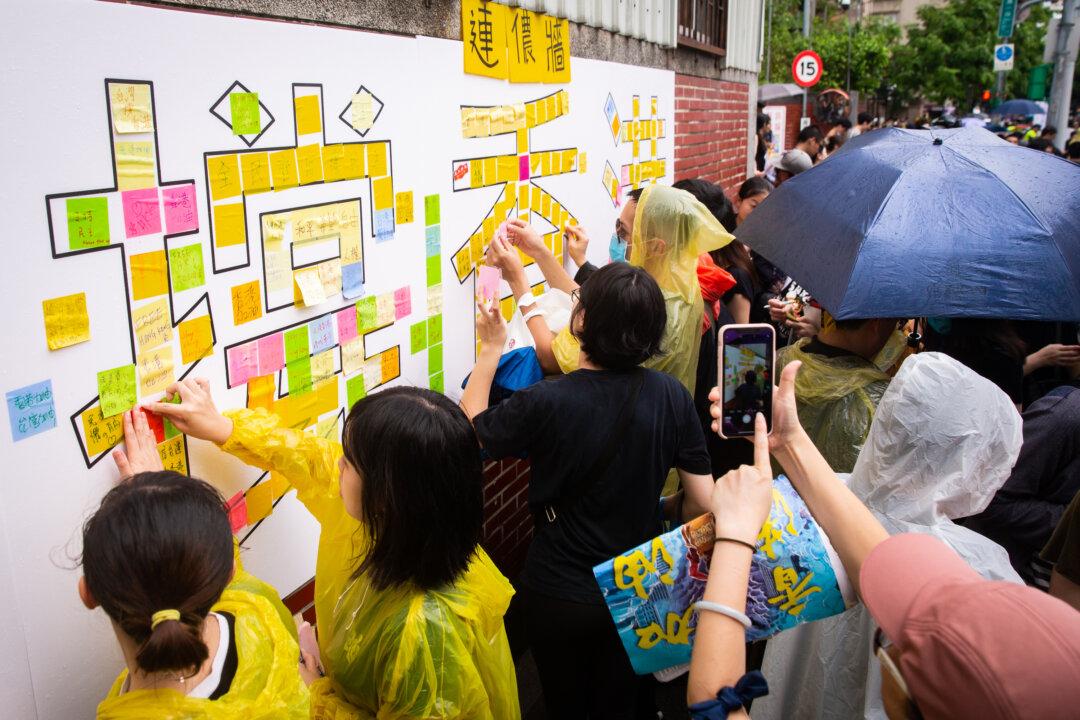TAIPEI, Taiwan—Immigration officials in Taiwan have warned mainland Chinese tourists and exchange students that they won’t be granted re-entry to the island if they damage the so-called Lennon Walls that have been created by people who support Hong Kong protesters.
The mass demonstrations in Hong Kong against Beijing’s encroachment into local affairs, now in their 17th week, enjoy enormous support in Taiwan. Some locals have supported drives to donate helmets and gas masks to Hong Kong protesters, while others have set up “Lennon Walls,” which are large mosaics of Post-it notes and posters put up by supporters to convey messages of solidarity with the protesters.





